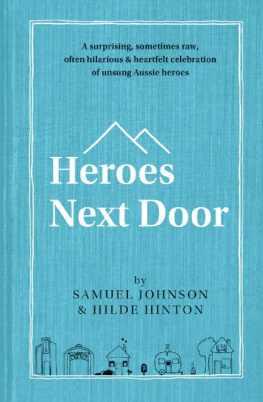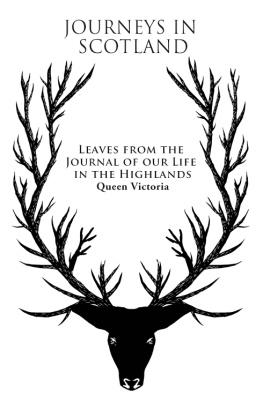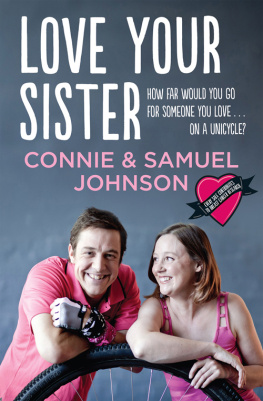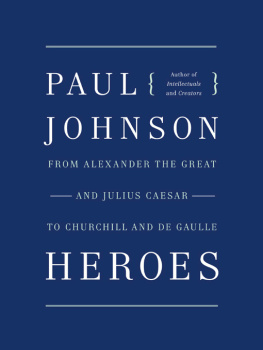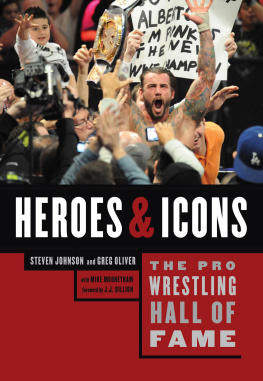Samuel Johnson - Heroes Next Door
Here you can read online Samuel Johnson - Heroes Next Door full text of the book (entire story) in english for free. Download pdf and epub, get meaning, cover and reviews about this ebook. year: 2020, publisher: Hachette Australia, genre: Non-fiction. Description of the work, (preface) as well as reviews are available. Best literature library LitArk.com created for fans of good reading and offers a wide selection of genres:
Romance novel
Science fiction
Adventure
Detective
Science
History
Home and family
Prose
Art
Politics
Computer
Non-fiction
Religion
Business
Children
Humor
Choose a favorite category and find really read worthwhile books. Enjoy immersion in the world of imagination, feel the emotions of the characters or learn something new for yourself, make an fascinating discovery.
- Book:Heroes Next Door
- Author:
- Publisher:Hachette Australia
- Genre:
- Year:2020
- Rating:3 / 5
- Favourites:Add to favourites
- Your mark:
- 60
- 1
- 2
- 3
- 4
- 5
Heroes Next Door: summary, description and annotation
We offer to read an annotation, description, summary or preface (depends on what the author of the book "Heroes Next Door" wrote himself). If you haven't found the necessary information about the book — write in the comments, we will try to find it.
Heroes Next Door — read online for free the complete book (whole text) full work
Below is the text of the book, divided by pages. System saving the place of the last page read, allows you to conveniently read the book "Heroes Next Door" online for free, without having to search again every time where you left off. Put a bookmark, and you can go to the page where you finished reading at any time.
Font size:
Interval:
Bookmark:

They walk amongst us. We pass them on the streets every day. The unsung heroes in the shadows, quietly making other peoples lives better when adversity strikes. Here, we shine the light on these courageous Australians. Welcome to
Heroes Next Door.

Sharon started on the trams in Melbourne, but quickly found her calling as a train station host. Melbourne Metro, Malvern Station, Platform One.
For fourteen years, Sharons job was to curate the best possible experience for peak-hour commuters; to help any of them in any given way, at any given time. This suited Sharon perfectly, as the job required her to simply be herself. She was a bona fide helper years before the job emerged. In the interview for the position, her passion for helping others was obvious and she was promptly hired, because you cant fake generosity of spirit.
Platform One became home for Sharon. Every morning shed colourfully decorate her blackboard to greet incoming commuters. It always came with a quote of the day, a weather report, sometimes a drawing, a joke, or a cheerful pattern; always different. Every morning shed post a pic of her board on social media, where she became quickly and roundly adored. She personified community and was duly lauded.
Sharon knew all her commuters on a first-name basis and they all knew hers. In the winter shed raid the lemon trees near the station and hand them out to commuters to put in their tea if they were sniffly. She hoarded and rehomed all the lost brollies. Sharon, in her own time, put together the ultimate travel pack for foreign or interstate visitors and always had them at the ready. She was known for being of expert assistance to the elderly, infirm and disabled. She would bring in home-baked treats to share, and it became a bit fashionable. More and more commuters started bringing food to share from home. Sharon was constantly being invited to dinners and parties, and she never stopped feeling surprised at how willing her commuters were to share every intimate detail about their lives.
Then there was Michelle. She came to Platform One for ten years. Michelle was rebuilding her life after a long stint behind bars, and often needed Sharons assistance. Sharon would sit with her, make the calls, fill out the forms, teach her how to use her phone properly.
It was the homeless people within her reach that Sharon really took a shine to, though. She created a special pack for them, which she developed with the city council, to provide every relevant touchstone available for someone in crisis. That always came with a cup of hot two-minute noodles.
Sharon was mum, to everyone on Platform One for fourteen years. These days, shes been on personal leave for far longer than shed like, and she misses it terribly. Sharon cant wait to get back to her old ways, helping all and sundry, on Platform One. Especially those who need it the most.
When I walk I never look down. I dont look at peoples faces either. I look into their eyes. You never know what they are going through, what theyve been through and what they are yet to face.
Sharon Vanderkaay
SJ

Mel was always a fixer. When some of her high school friends had dealings with child protection, Mel watched on. It determined her path. She was going to study social work and help kids when she grew up. Her boyfriend was not a fixer. John was a larrikin and his skylarking got him into trouble. There was a nudie run through a park and his friends thought it would be funny to leave his clothes on the steps of the nearby police station, where he was promptly arrested. There was the time John drove a quad bike to the supermarket. He thought he was racing a man walking towards the store, the man thought he was trying to run him over. The charges were dropped. Johns parents left his stuff out on the verandah; its not like he hadnt been warned. Mel the Fixer convinced her parents that John should move in with them.
A busy few years followed. Mel worked two jobs while she studied, John started his own bricklaying business and they settled into the rundown house they had bought. Mel began working with high-risk teens and soon after, they had a baby. Before their son turned one, Mel asked John whether hed thought about fostering kids. He most certainly had not, nor was he keen on the idea. At all. But he agreed with Mel when she said there was no harm in doing the training, so they could make an informed decision. John liked logic. When they mentioned the training to their parents at a Sunday family get-together, there was open dismay. Bringing in hapless strays could put their own baby at risk. As the next generation are prone to do, they went against their parents wishes and proceeded to do the course anyway.
Two weeks after completion, there was a phone call. There were two boys aged eight and ten who were in a place that didnt meet their needs. Mel took the call, had nameplates made up for the two lads and set up two beds in the spare room. Just for the weekend of course. John agreed after all, the nameplates were a welcoming gesture, and they could be removed as quickly as they were put up.
The two boys arrived with a garbage bag full of unclean and ill-fitting clothes. This saddened and outraged John, who threw the garbage bag in the bin and immediately took them shopping. So theyd have some reasonable clothing when they moved on seventeen placements and counting. At the last house, the older boy had been threatened with a knife, and his brother had been too scared to stick up for him. John became immediately invested and when Monday came around, they told the program coordinator that there was no rush to remove the boys.
John was still adjusting to parenthood but knew innately that a one-year-old would always get the most attention in any family. As the weeks went on, he made sure the boys didnt feel left out. The grandparents had done a one-eighty upon meeting them at a Sunday afternoon family gathering, and Mel had decided they were going to be their boys. That she was their mum and that was the end of it. John went along willingly, but he didnt feel the way he thought he was supposed to. He was hands-on and did the sport runs, but his heart wasnt as present as his face.
After a few months, some negative behavioural patterns crept in. The older boy was regularly disrespectful towards Mel, and even though John knew this was because the lad had grown up surrounded by domestic violence, it upset him. The counselling didnt seem to be doing much good either. More often than not, John would go and collect him at the end of his sessions to find out hed told the counsellor to get fucked and had skulked around the corner until it was time to be picked up. John couldnt get him to talk about anything, and both boys became agitated the week before their monthly access visits to their biological parents. Then it took a week afterwards for them to settle back in. The boys struggled through any transition, whether it was moving to a school closer to home or going from primary to secondary school, but John and Mel were by their side through all the hurdles.
When the boys hit high school, John and Mel sought a permanent care order. There was a bit of a scare when one biological parent refused to sign it, so off they went to court. John found this much more difficult than anything so far, but he applied the same even temperament and determination to succeed as he had through all their ups and downs. They got custody, and as they celebrated at their regular Sunday family get-together, John looked around at his family the way it was. The way it always would be. He didnt know when it had stopped being hard, but it had.
Next pageFont size:
Interval:
Bookmark:
Similar books «Heroes Next Door»
Look at similar books to Heroes Next Door. We have selected literature similar in name and meaning in the hope of providing readers with more options to find new, interesting, not yet read works.
Discussion, reviews of the book Heroes Next Door and just readers' own opinions. Leave your comments, write what you think about the work, its meaning or the main characters. Specify what exactly you liked and what you didn't like, and why you think so.

